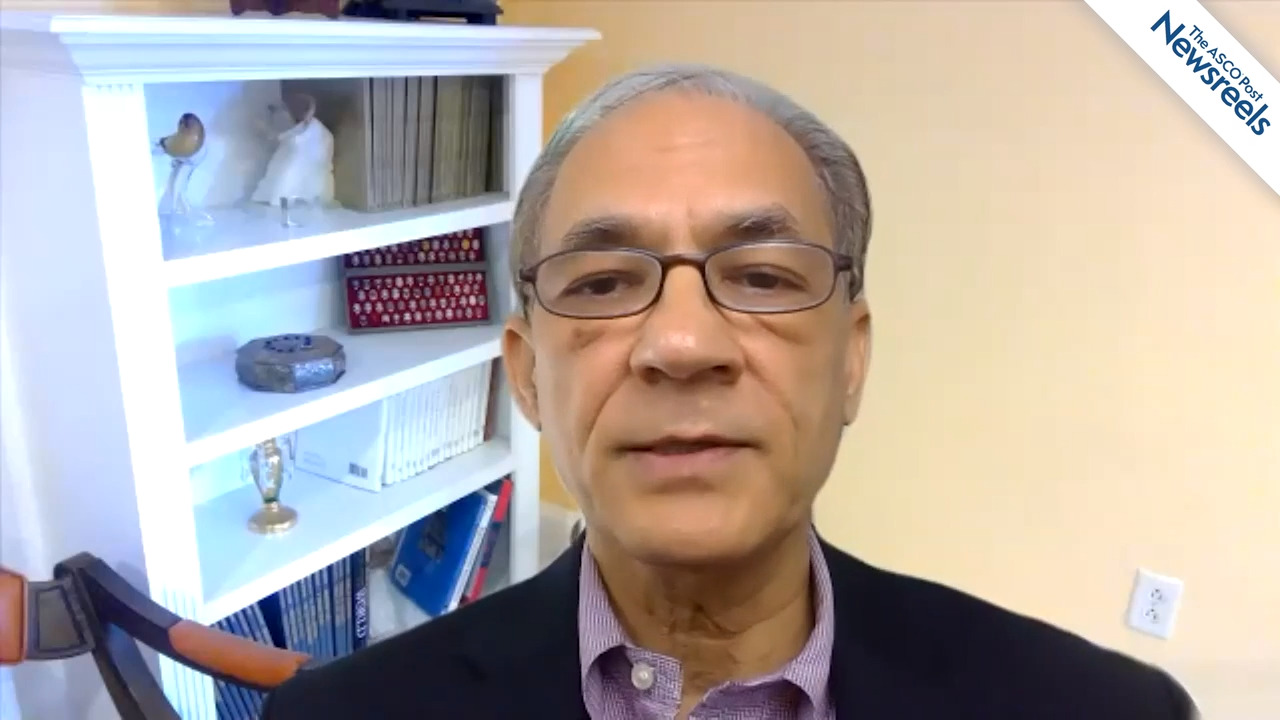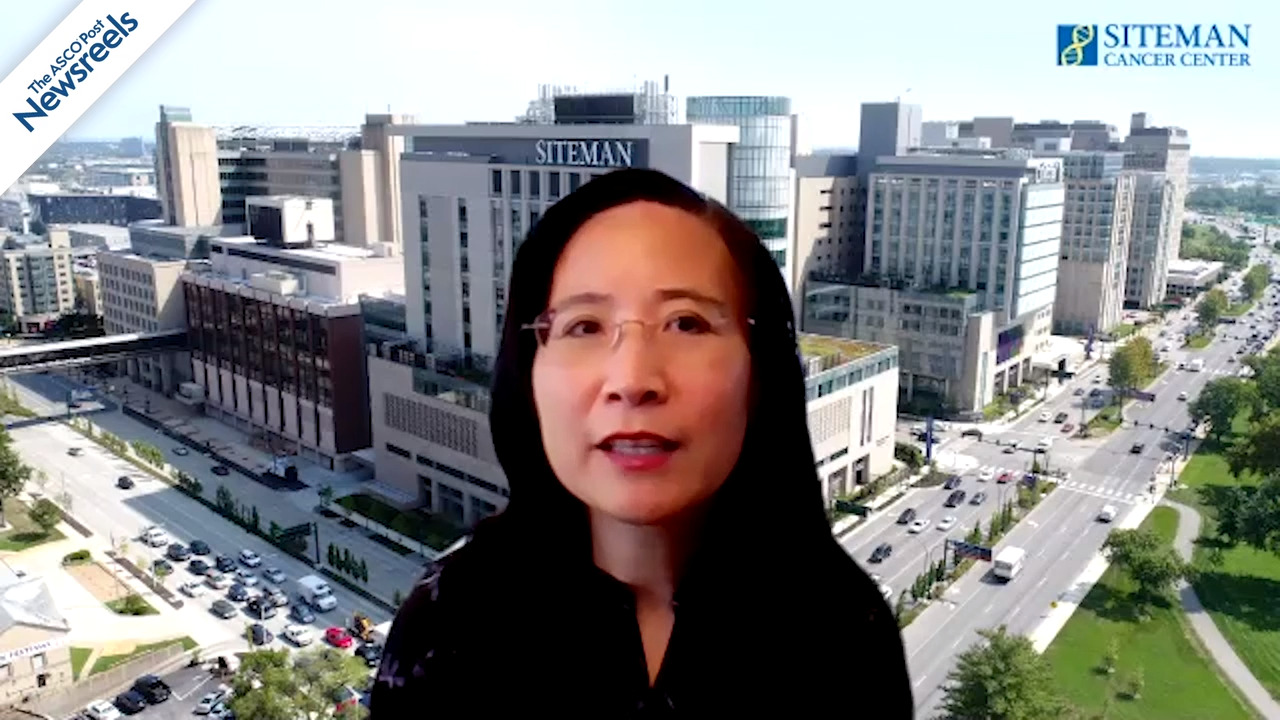Michael J. Morris, MD, on Prostate Cancer: Impact of PSMA-Targeted Imaging on Clinical Management
ASCO20 Virtual Scientific Program
Michael J. Morris, MD, of Memorial Sloan Kettering Cancer Center, discusses phase III data from the CONDOR trial, which showed that PSMA-targeted PET scans detected and localized occult disease in most men with biochemically recurrent prostate cancer presenting with negative or equivocal conventional imaging findings (Abstract 5501).
The ASCO Post Staff
Patricia Pautier, MD, of Institut Gustave Roussy, discusses final results of the phase II LMS-02 study, which showed the combination of doxorubicin and trabectedin to be an effective first-line therapy for patients with leiomyosarcoma, with an acceptable safety profile (Abstract 11506).
The ASCO Post Staff
Nikhil C. Munshi, MD, of Dana-Farber Cancer Institute, discusses initial results from the KarMMa tria, showing that idecabtagene vicleucel, a B-cell maturation antigen-targeted CAR T-cell therapy, demonstrated deep and durable responses in patients with heavily pretreated relapsed or refractory multiple myeloma. Efficacy and safety data support a favorable clinical benefit-risk profile across the target dose range (Abstract 8503).
The ASCO Post Staff
Sarah A. Holstein, MD, PhD, of the University of Nebraska Medical Center, discusses top myeloma abstracts from the ASCO20 Virtual Scientific Program: the ENDURANCE trial on carfilzomib, lenalidomide, dexamethasone, and bortezomib; the STaMINA study on transplantation strategies; a first-in-human study on the novel CELMoD agent CC-92480 plus dexamethasone; the CARTITUDE-1 trial on CAR T-cell therapy; and a phase I study of teclistamab (Abstracts LBA3, 8506, 8500, 8505, and 100).
The ASCO Post Staff
Christopher Sweeney, MBBS, of Dana-Farber Cancer Institute, talks with Thomas Powles, MD, PhD, of Queen Mary University of London, about the first study to demonstrate a survival advantage with avelumab for metastatic urothelial cancer. In the trial, avelumab improved median overall survival by 21.4 months compared with 14.3 months with best supportive care (Abstract LBA1).
The ASCO Post Staff
Cynthia X. Ma, MD, PhD, of Washington University, discusses results from the ALTERNATE trial, which showed neither fulvestrant nor fulvestrant plus anastrozole significantly improved endocrine-sensitive disease rate compared with anastrozole alone in postmenopausal patients with locally advanced estrogen receptor–positive, HER2-negative breast cancer (Abstract 504).





